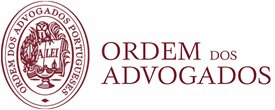Best Child Abuse Lawyers in Santa Maria da Feira
Share your needs with us, get contacted by law firms.
Free. Takes 2 min.
Free Guide to Hiring a Family Lawyer
List of the best lawyers in Santa Maria da Feira, Portugal
About Child Abuse Law in Santa Maria da Feira, Portugal
Child abuse is a serious concern in Santa Maria da Feira, as it is throughout Portugal. The law classifies child abuse as any form of physical, psychological, or emotional harm, negligence, sexual abuse, or exploitation of a person under 18 years old. Portuguese authorities and the legal system prioritize the protection of minors, with specific legal frameworks in place to prevent, address, and penalize child abuse. Cases may involve abuse within the family, in institutions, or by individuals close to the child, and are handled with utmost sensitivity and confidentiality.
Why You May Need a Lawyer
There are several situations in which legal assistance is crucial in matters relating to child abuse in Santa Maria da Feira:
- If you suspect that a child is being abused and want to know how to report it safely and correctly
- If you are facing accusations of child abuse and need defense representation
- If you are a parent or guardian involved in disputes where allegations of abuse have arisen
- If you are involved in custody battles with concerns of abuse or neglect
- If you work in education, healthcare, or social services and encounter possible cases of child mistreatment
- If you need to understand your rights and obligations related to the protection of children under Portuguese law
- If you represent an organization that serves children and want to ensure compliance with local legal requirements
In any of these scenarios, a lawyer experienced in child protection law can guide you through the legal process, help gather evidence, represent you before authorities or courts, and provide invaluable advice to protect children's welfare.
Local Laws Overview
In Santa Maria da Feira, child abuse laws comply with national Portuguese legislation, particularly the Penal Code and the Law for Protection of Children and Young People in Danger (Lei de Proteção de Crianças e Jovens em Perigo). Key points include:
- Mandatory Reporting - Professionals such as teachers, healthcare workers, and social workers must report suspected cases of abuse.
- Types of Abuse - The law covers physical abuse, emotional or psychological abuse, sexual abuse, neglect, abandonment, and exploitation.
- Protective Measures - Authorities can take immediate action to remove a child from a dangerous situation and place them under temporary or permanent care arrangements if necessary.
- Criminal Sanctions - Perpetrators of child abuse may face criminal charges, which can lead to imprisonment and fines.
- Confidentiality - The identity of the reporter and all case-related information are treated with strict confidentiality to protect all parties involved.
- Support Services - There are legal mechanisms for offering psychological, emotional, and social support to victims and their families.
- Child’s Best Interest - All decisions focus on what best serves the minor’s safety, health, and overall well-being.
These laws are enforced by local police authorities, social services, child protection commissions, and the judicial system, all working collaboratively to safeguard children.
Frequently Asked Questions
What are the signs of child abuse to look out for?
Possible signs include unexplained injuries, sudden changes in behavior, fear of certain adults, poor hygiene, inappropriate sexual knowledge for age, and repeated absences from school. However, the presence of these signs does not confirm abuse and should be reported for professional evaluation.
Who can report suspected child abuse in Santa Maria da Feira?
Anyone can report suspicions of child abuse, including family, friends, neighbors, professionals, or even anonymously. Some professionals are legally required to report suspicions immediately.
Where can I report child abuse locally?
Reports can be made to the Comissão de Proteção de Crianças e Jovens (CPCJ), the local police (Polícia de Segurança Pública or Guarda Nacional Republicana), or the nearest hospital emergency department.
What happens after a report is made?
Authorities will conduct an initial assessment. If the child is in immediate danger, urgent protective measures can be taken. An investigation then follows to establish facts and provide appropriate support to the child and family.
Are parents automatically prosecuted if accused of child abuse?
No, each case is assessed individually and evidence is collected before any prosecution begins. Parents are given the opportunity for defense and due process is followed.
What protections exist for children during an investigation?
Children are interviewed by trained professionals in safe settings. Their interests are prioritized, and psychological and emotional support is provided throughout the process.
Can a child be removed from their home?
Yes, if authorities believe there is a serious threat to the child's safety, temporary or permanent removal may be ordered by the court. The aim is always to place the child in the safest environment possible.
What are the penalties for committing child abuse?
Penalties vary based on the severity and type of abuse but may include imprisonment, fines, restraining orders, and loss of parental rights. Some cases may also involve mandatory treatment or rehabilitation programs.
Can someone accused of child abuse continue to see their child?
A court may restrict or supervise contact if it is deemed that the child's welfare or safety is at risk. Supervised visits can be arranged until it is safe to restore normal contact, based on evidence and professional recommendations.
How can a lawyer help in a child abuse case?
A lawyer can advise on your rights, help file or defend against complaints, gather and present evidence, ensure fair legal procedures, and represent you in court or administrative hearings. They can also assist families in accessing support services.
Additional Resources
For those seeking support or guidance about child abuse in Santa Maria da Feira, the following resources may be helpful:
- Comissão de Proteção de Crianças e Jovens (CPCJ) de Santa Maria da Feira - The local Child Protection Commission, responsible for protecting endangered children and providing guidance.
- Polícia de Segurança Pública (PSP) and Guarda Nacional Republicana (GNR) - Law enforcement agencies where abuse reports can be filed and immediate protection requested.
- Centro de Apoio à Criança e à Família - Local centers providing counseling, legal, and social support for children and families.
- Social security services - Available to assess family situations and provide support measures to secure children’s welfare.
- Nacional child abuse hotlines - Free and confidential services for emergency advice and reporting.
- Victim Support organizations (APAV) - Provide support, information, and legal guidance to victims and their families.
Next Steps
If you or someone you know needs legal help related to child abuse in Santa Maria da Feira, consider the following steps:
- Prioritize immediate safety - In emergencies, contact the police or child protection services right away.
- Gather all relevant information and evidence if possible, such as documents, photos, and witness statements.
- Contact a lawyer experienced in child protection law to review your case and explain your options.
- Cooperate fully with authorities and attend any scheduled interviews or hearings.
- Seek support services for children and families to address emotional and psychological needs.
- Follow all legal instructions and court orders carefully, and keep communication open with appointed social workers or legal representatives.
- Stay informed about your rights and obligations throughout the process, asking your lawyer for clarification whenever needed.
Legal guidance can make a significant difference in protecting children and navigating complex child abuse cases. Taking prompt, informed action ensures better outcomes for all involved.
Lawzana helps you find the best lawyers and law firms in Santa Maria da Feira through a curated and pre-screened list of qualified legal professionals. Our platform offers rankings and detailed profiles of attorneys and law firms, allowing you to compare based on practice areas, including Child Abuse, experience, and client feedback.
Each profile includes a description of the firm's areas of practice, client reviews, team members and partners, year of establishment, spoken languages, office locations, contact information, social media presence, and any published articles or resources. Most firms on our platform speak English and are experienced in both local and international legal matters.
Get a quote from top-rated law firms in Santa Maria da Feira, Portugal — quickly, securely, and without unnecessary hassle.
Disclaimer:
The information provided on this page is for general informational purposes only and does not constitute legal advice. While we strive to ensure the accuracy and relevance of the content, legal information may change over time, and interpretations of the law can vary. You should always consult with a qualified legal professional for advice specific to your situation.
We disclaim all liability for actions taken or not taken based on the content of this page. If you believe any information is incorrect or outdated, please contact us, and we will review and update it where appropriate.









